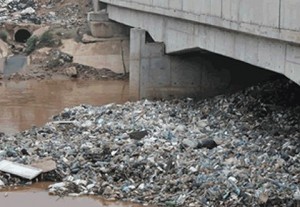Ghana shows high rural-urban gap in sewage, other infrastructure
 Ghana’s rural-urban infrastructure gap is worst in the provision of sewage systems, compared with rural-urban equity in electricity access, roads, water and access to cellular telephony, according to a new Afrobarometer survey of 35 African countries.
Ghana’s rural-urban infrastructure gap is worst in the provision of sewage systems, compared with rural-urban equity in electricity access, roads, water and access to cellular telephony, according to a new Afrobarometer survey of 35 African countries.
On a scale of 0 to 100, the survey rates availability of sewage systems in urban Ghana at 78 per cent but rates its availability in rural areas at 25 per cent – a 53 percentage point gap.
The average rural-urban gap among the 35 countries surveyed in provision of sewage systems, is 48-points, which means Ghana’s gap is bigger and worse than the average.
The Afrobarometer survey report, “Building on progress: Infrastructure Development Still a Major Challenge in Africa”, shows that the phenomenon is not peculiar to Ghana. Of the 35 countries assessed, majority showed their greatest weakness in the availability of sewage systems and its rural-urban equity.
In 20 of the 35 African countries surveyed, the availability of sewer systems is below the 30 per cent average and less than 2 out of 10 citizens live in zones with sewage systems.
Fourteen of the 35 countries have a rural-urban gap in the availability of sewer systems that is worse than the average gap of 48 percentage points.
Even Mauritius, a country which according to the survey has no rural-urban gap in the provision of electricity, piped water, roads and cellular telephony, has a rural urban gap in sewage systems.
Egypt, another high performing country, showed its worst rural-urban inequity in the provision of sewage systems.
The difference between the 48-point average rural-urban gap and Zimbabwe, the country with the worst rural-urban gap in sewage provision, is 42 percentage points.
In contrast with the rural-urban gap in cellular telephony, the average gap is only 10 percentage points and the difference between the country with the worst rural-urban gap (Guinea) and the average is just 14 points.
The report concludes that the findings “point to the need for African governments to intensify efforts to develop basic infrastructure across the continent.”
“Of particular concern are infrastructure deficits in rural areas, where a majority of the population lives and works, but where on average less than half of all people have access to electricity, piped water, sewerage, and tarred/paved roads.”
By Emmanuel Odonkor
